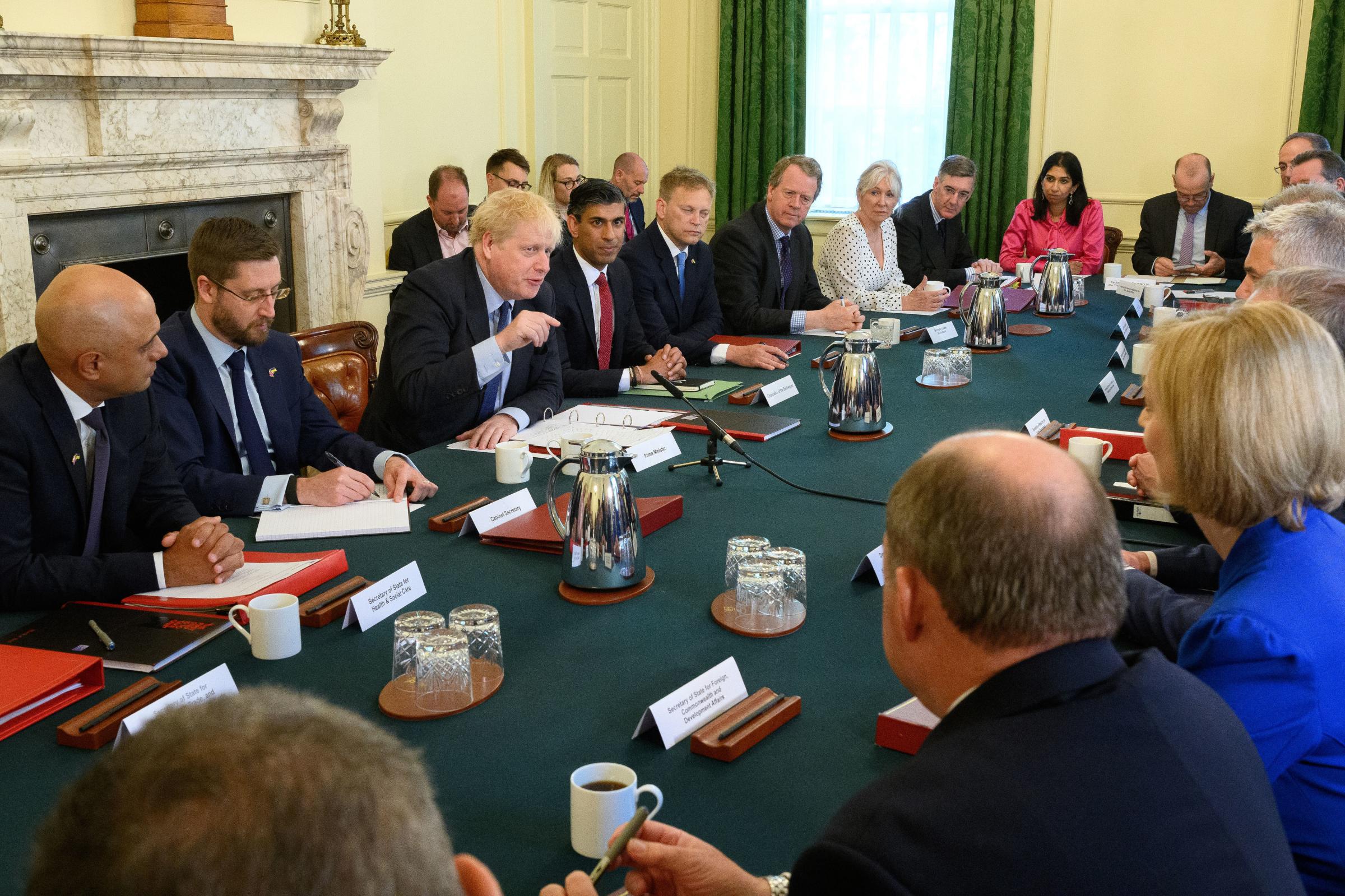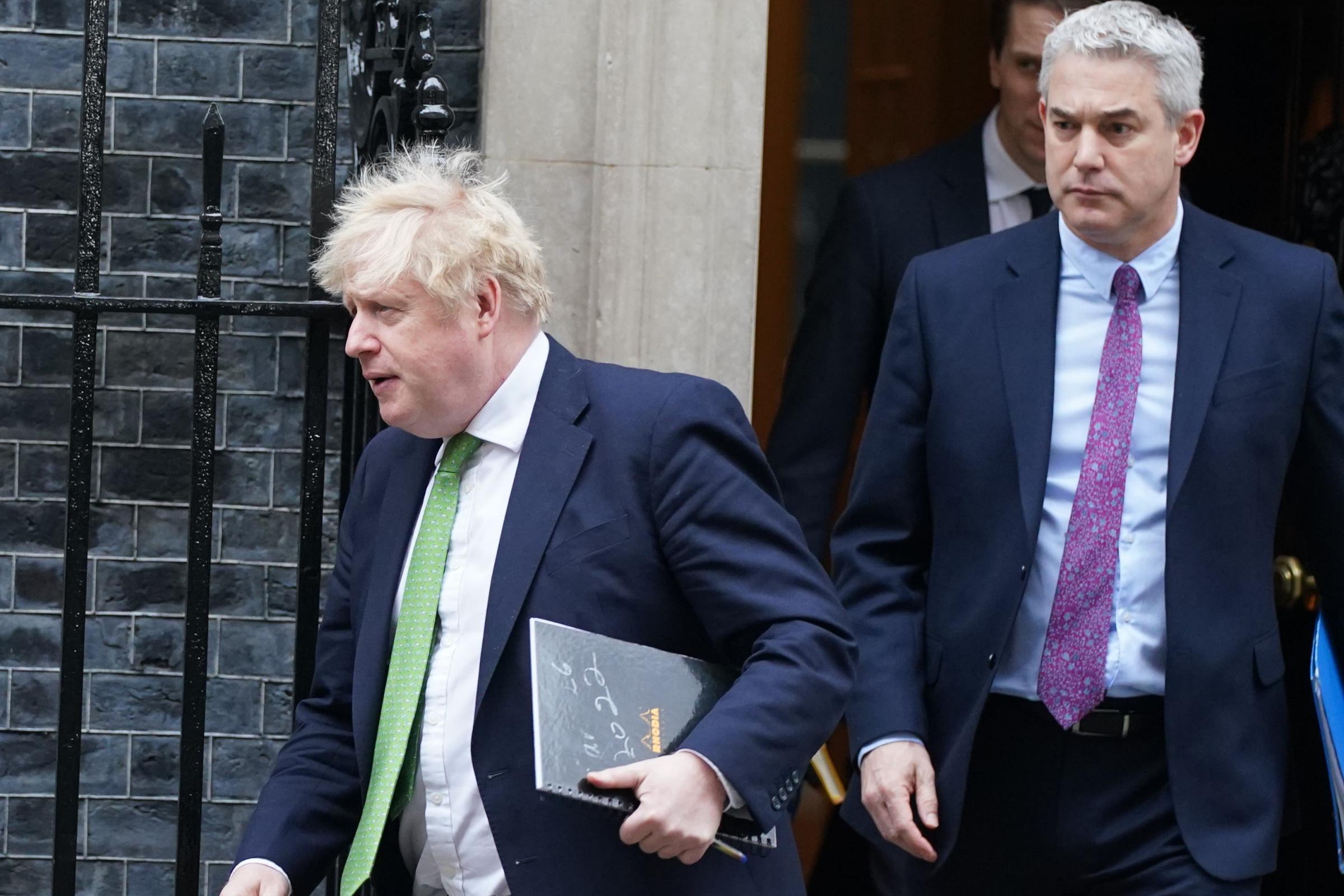
TORY ministers are plotting to slash controls on City bosses’ pay, while calling for wage restraint in the public sector.
Boris Johnson's chief of staff, Steve Barclay, has reportedly proposed a plan to the Chancellor for “deregulatory measures to reduce the overall burden on business” in an apparent effort to attract more companies to the UK following Brexit.
This would involve removing restrictions on director and non-executive director remuneration, according to a leaked copy of the letter seen by the i newspaper.
“I trust you’ll agree this is a more proportionate regulatory response and reflective of the new approach to regulation outlined in the ‘Benefits of Brexit’ publication in January,” it said.
The paper reported that Steve Barclay requested Business Secretary Kwasi Kwarteng outline further measures to ease the burden on business, referring explicitly to the need to alter curbs on bosses’ pay.
The Department for Business, Energy and Industrial Strategy (BEIS) confirmed it is exploring “whether there are any unnecessary restrictions on paying non-executive directors in shares, which could ensure they are fully invested in the success of the company they run”.
“If the company does well, directors do well,” it added.
Current rules on corporate pay were set as a result of the UK's former EU membership, with many introduced following the 2008 financial crash. This includes a cap on bonuses, which are to be no more than 100% of fixed pay or double that with explicit shareholder approval.
The move to relax the rules comes as the Prime Minister and Chancellor have argued that discipline and restraint on public sector pay are important now to manage inflationary pressures downwards.
“We have a responsibility to tackle inflation and stop it becoming entrenched,” No 10 said.
“To do this we must ensure that pay settlements are sensible and do not scramble to match inflation, and as a result drive up prices as the cost of goods and service increase to incorporate pay rises.”

Speaking ahead of a Cabinet meeting on Tuesday, the Prime Minister said: “It is right that we reward our hard-working public sector workers with a pay rise, but this needs to be proportionate and balanced.
“Sustained higher levels of inflation would have a far bigger impact on people’s pay packets in the long run, destroying savings and extending the difficulties we’re facing for longer.”
On Monday, the chief secretary to the Treasury called for “public-sector pay discipline” and “collective society-wide responsibility” in order to prevent a 1970s-style wage-price spiral.
The Bank of England last week forecast inflation was set to hit 11% in the autumn as it hiked interest rates to 1.25% – the fifth successive rise.
Labour’s leader in the House of Lords, Baroness Smith, accused the Government of using “two sets of rules”: one for people on high incomes in the City, and another for workers elsewhere.
She told peers: “On one hand, we’re telling those who are working that you must have wage restraint. Does it not seem somewhat hypocritical to be saying to the City that those constraints, those curbs that have been in place are to be removed?
“My Lords, it comes back to [the fact] the Government seems to think the rules are for other people, but not for them and their friends.”
Labour’s shadow business secretary Jonathan Reynolds said: “It’s the hallmark of a Government that lurches from crisis to crisis that instead of giving businesses real certainty, they’re looking down the sofa for random ideas.
“If this is what an audit review of four years, three consultations and thousands of pounds of taxpayers money has given us, it’s clear the Tories are incapable of governing.
“The Conservatives should be doing all they can to make Brexit work by fixing the holes in the Government’s patchwork deal. Labour will work in partnership with businesses to help create a stronger, more secure economy.”
A BEIS spokesperson said: “As announced last month, we are looking to strengthen the rules on clawing back bonuses from directors if their company collapses to stamp out ‘rewards for failure’.
“By the same token, we are also exploring whether there are any unnecessary restrictions on paying non-executive directors in shares, which could ensure they are fully invested in the success of the company they run. If the company does well, directors do well.”







